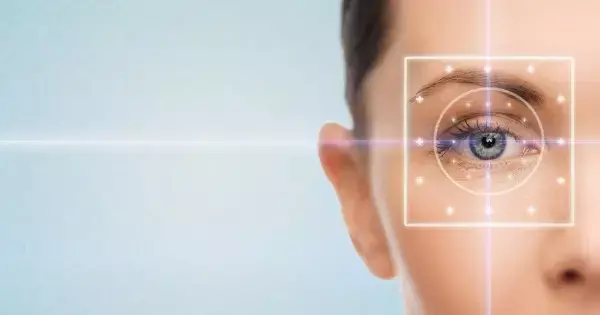- Home
- Medical news & Guidelines
- Anesthesiology
- Cardiology and CTVS
- Critical Care
- Dentistry
- Dermatology
- Diabetes and Endocrinology
- ENT
- Gastroenterology
- Medicine
- Nephrology
- Neurology
- Obstretics-Gynaecology
- Oncology
- Ophthalmology
- Orthopaedics
- Pediatrics-Neonatology
- Psychiatry
- Pulmonology
- Radiology
- Surgery
- Urology
- Laboratory Medicine
- Diet
- Nursing
- Paramedical
- Physiotherapy
- Health news
- Fact Check
- Bone Health Fact Check
- Brain Health Fact Check
- Cancer Related Fact Check
- Child Care Fact Check
- Dental and oral health fact check
- Diabetes and metabolic health fact check
- Diet and Nutrition Fact Check
- Eye and ENT Care Fact Check
- Fitness fact check
- Gut health fact check
- Heart health fact check
- Kidney health fact check
- Medical education fact check
- Men's health fact check
- Respiratory fact check
- Skin and hair care fact check
- Vaccine and Immunization fact check
- Women's health fact check
- AYUSH
- State News
- Andaman and Nicobar Islands
- Andhra Pradesh
- Arunachal Pradesh
- Assam
- Bihar
- Chandigarh
- Chattisgarh
- Dadra and Nagar Haveli
- Daman and Diu
- Delhi
- Goa
- Gujarat
- Haryana
- Himachal Pradesh
- Jammu & Kashmir
- Jharkhand
- Karnataka
- Kerala
- Ladakh
- Lakshadweep
- Madhya Pradesh
- Maharashtra
- Manipur
- Meghalaya
- Mizoram
- Nagaland
- Odisha
- Puducherry
- Punjab
- Rajasthan
- Sikkim
- Tamil Nadu
- Telangana
- Tripura
- Uttar Pradesh
- Uttrakhand
- West Bengal
- Medical Education
- Industry
Pregabalin during LASEK surgery reduces pain and affects corneal nerve sensitivity: BMJ

South Korea: In a new study conducted by Dong Won Paik and team it was seen that pregabalin may affect corneal nerve sensitivity and minimize discomfort during laser epithelial keratomileusis (LASEK) surgery. The findings of this study were published in the British Journal of Ophthalmology, on 22nd March 2022.
Dryness and soreness are hypothesized to be caused by corneal nerve injury during laser epithelial keratomileusis. As a result, the purpose of this study was to see if taking pregabalin (Lyrica), lowers peripheral neuropathic pain, improves corneal nerve sensitivity following surgery and decreases dry eye and pain.
Patients in this trial were given pregabalin (150 mg twice a day for 15 days) starting the day before surgery and were compared to individuals who did not get the drugs. The degree of dry eye was determined prior to surgery. The corneal sensitivity was then measured using esthesiometry, and pain was measured using the Visual Analogue Scale. Confocal microscopy was used to examine images of the sub-basal nerve plexus at 6 months to assess nerve regeneration.
The key findings of this study were as follows:
1. This study included 40 eyes in the pregabalin group.
2. 40 eyes were also present in the control group.
3. Until 6 months, no significant changes in the severity of dry eye, corneal sensitivity test findings, or nerve fiber density existed between the two groups.
4. At one week, the pregabalin group experienced much less discomfort.
In conclusion, pregabalin may assist minimize postoperative pain after LASEK in the short term, but it does not appear to increase dry eye symptoms or lower corneal nerve regeneration. However, for up to 6 months after that, corneal sensitivity and nerve fiber density are not substantially different from those seen in the control group, indicating that pregabalin has no effect on nerve regeneration or structural changes.
Reference:
Paik, D. W., Lim, D. H., & Chung, T.-Y. (2020). Effects of taking pregabalin (Lyrica) on the severity of dry eye, corneal sensitivity and pain after laser epithelial keratomileusis surgery. In British Journal of Ophthalmology. BMJ. https://doi.org/10.1136/bjophthalmol-2020-317570
Medical Dialogues consists of a team of passionate medical/scientific writers, led by doctors and healthcare researchers. Our team efforts to bring you updated and timely news about the important happenings of the medical and healthcare sector. Our editorial team can be reached at editorial@medicaldialogues.in.
Dr Kamal Kant Kohli-MBBS, DTCD- a chest specialist with more than 30 years of practice and a flair for writing clinical articles, Dr Kamal Kant Kohli joined Medical Dialogues as a Chief Editor of Medical News. Besides writing articles, as an editor, he proofreads and verifies all the medical content published on Medical Dialogues including those coming from journals, studies,medical conferences,guidelines etc. Email: drkohli@medicaldialogues.in. Contact no. 011-43720751


